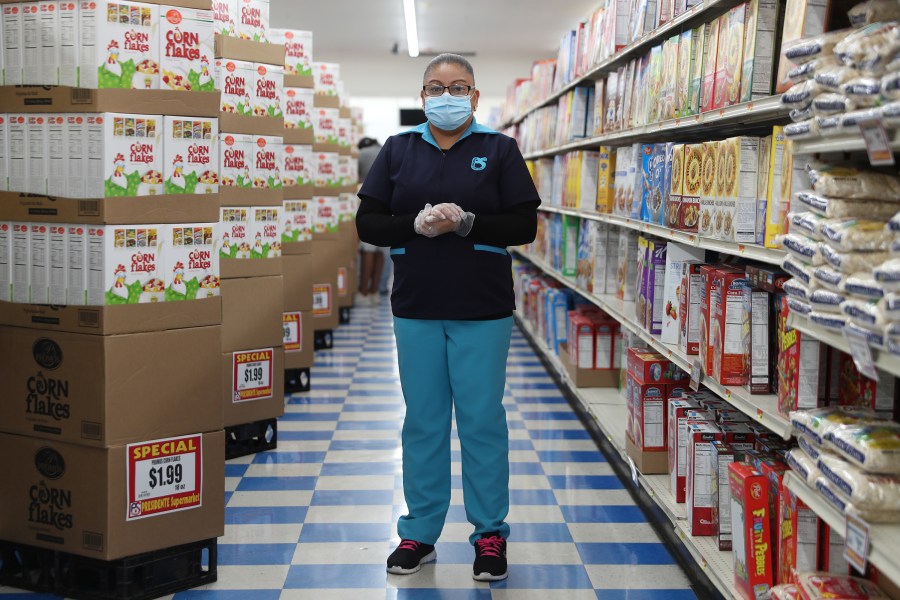Trump’s OSHA could mandate essential worker protections, but it hasn’t. Why not?

In the United States, there are no specific regulations laying out what companies must do to protect workers from airborne infectious diseases like the novel coronavirus. Workplace rules around face coverings, gloves and hand-washing vary from company to company. There is no standard.
Meanwhile, thousands of health care workers have tested positive for COVID-19. And growing numbers of people working in grocery stores, on public transit, in factories, warehouses and other essential services have died from virus complications as workers continue putting their health on the line so the rest of us can stay safe.
We speak with Dr. David Michaels, former head of the federal Occupational Safety and Health Administration under President Barack Obama, and we ask him: Who is looking out for the most vulnerable people in the U.S. workforce right now? The answer was grim.
“In the face of this epidemic, OSHA could easily just put out a statement — a requirement saying all employers must follow [federal] OSHA regulations and CDC guidelines,” Michaels says. “But the decision has been made, right now at least, not to put that out.”
Instead, President Donald Trump’s “Opening Up America Again” guidelines place the responsibility for worker protection in the hands of state governments. Michaels tells us the problem is only 21 states have their own workplace safety programs or regulations in place, and business compliance is voluntary.
Michaels also outlines what rights workers have in the face of all this (not a whole lot).
And jobs on the front lines of the pandemic crisis could be among the few sectors hiring in the foreseeable future. If everyone who takes one of these jobs is immediately at risk, how can we keep the economy going?
Plus, we’ll talk about the bonkers oil market and how Whole Foods is using “heat maps” to detect possible labor organizing. Listen through to the end for stories from listeners about “ethical capitalism” and the urban-rural divide in delivery and other services during the pandemic.
When you’re done listening, tell your Echo device to “make me smart” for our Alexa explainers. This week: unemployment insurance, N95 masks and … jigsaw puzzles. Go figure. Finally, don’t forget to subscribe to our newsletter. Here’s the latest issue.
None of us is as smart as all of us.
No matter how bananapants your day is, “Make Me Smart” is here to help you through it all— 5 days a week.
It’s never just a one-way conversation. Your questions, reactions, and donations are a vital part of the show. And we’re grateful for every single one.


















